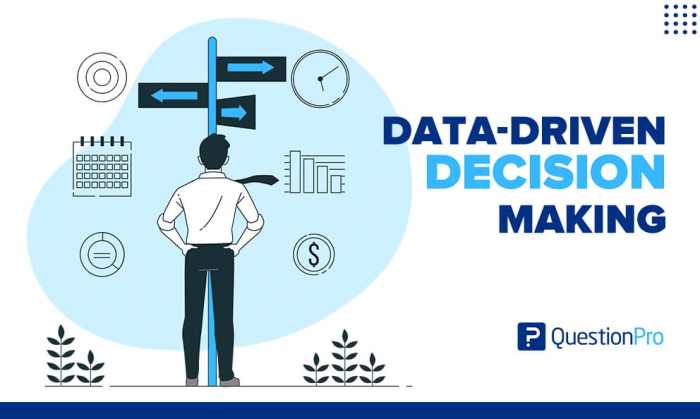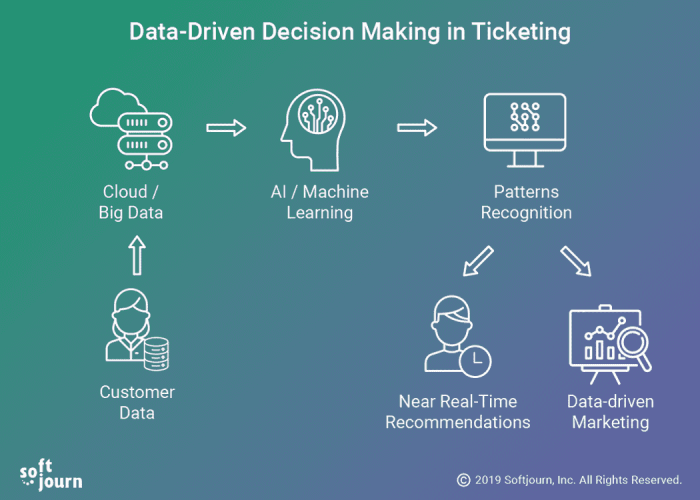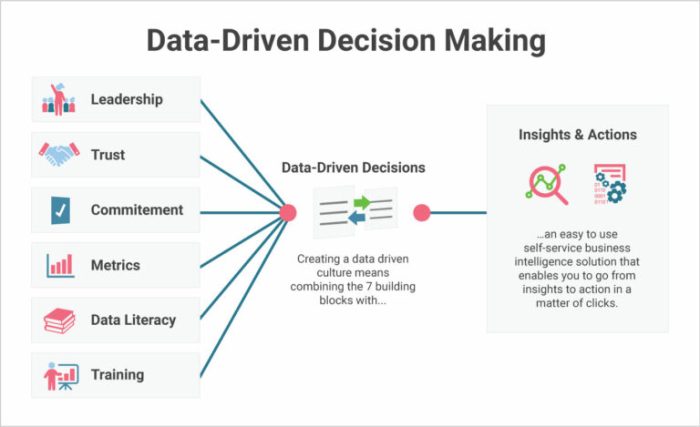CRM Analytics Apps: Data-Driven Decisions
In today’s competitive business landscape, understanding your customers is crucial for success. CRM analytics apps are powerful tools that empower businesses to leverage customer data and make data-driven decisions to improve customer relationships, boost sales, and enhance marketing effectiveness.
Introduction to CRM Analytics Apps
CRM analytics apps are software applications that analyze customer data collected from various CRM systems, such as sales, marketing, and customer service platforms. They provide valuable insights into customer behavior, preferences, and interactions, enabling businesses to understand their customers better and make informed decisions.
Data-driven decision making is essential for CRM success. By analyzing customer data, businesses can identify trends, patterns, and opportunities to improve customer engagement and satisfaction. For example, a company might discover that customers who purchase a specific product are more likely to be interested in a related product or service.
This insight can be used to create targeted marketing campaigns or offer personalized recommendations.
CRM analytics apps can significantly improve customer relationships in numerous ways:
- Personalized Marketing Campaigns:Analytics can help identify customer segments and tailor marketing messages to their specific needs and interests, leading to higher conversion rates and customer satisfaction.
- Proactive Customer Service:By analyzing customer interactions, businesses can identify potential issues and proactively address them before they escalate, improving customer satisfaction and loyalty.
- Targeted Sales Strategies:Analytics can help sales teams identify high-potential leads, predict customer churn, and optimize sales processes for increased revenue.
Key Features of CRM Analytics Apps

CRM analytics apps offer a range of features to help businesses gain actionable insights from their customer data. Some core features include:
- Reporting and Dashboards:These features provide a clear and concise overview of key metrics, such as customer acquisition cost, customer lifetime value, and conversion rates, allowing businesses to track progress and identify areas for improvement.
- Data Visualization:Visualizing data through charts, graphs, and interactive dashboards makes it easier to understand complex trends and patterns, facilitating informed decision making.
Advanced CRM analytics apps also offer features like:
- Predictive Analytics:Using historical data and machine learning algorithms, predictive analytics can forecast future customer behavior, such as churn risk or product purchase likelihood, enabling businesses to take proactive measures.
- AI-Powered Insights:AI algorithms can analyze large datasets and identify hidden patterns and insights that humans might miss, providing valuable recommendations for improving customer engagement and business outcomes.
Real-time data visualization is particularly valuable for CRM analytics. By providing up-to-the-minute insights into customer activity, businesses can react quickly to changes in customer behavior and make informed decisions in real time.
Benefits of Using CRM Analytics Apps

| Benefit | Description | Example | Impact |
|---|---|---|---|
| Increased Customer Retention | CRM analytics apps provide insights into customer behavior, allowing businesses to identify at-risk customers and implement retention strategies. | A clothing retailer uses analytics to identify customers who haven’t made a purchase in the last six months and sends them personalized discount codes. | Increased customer loyalty and revenue. |
| Improved Sales Performance | By analyzing customer data, sales teams can identify high-potential leads, predict customer churn, and optimize sales processes for increased revenue. | A software company uses analytics to identify leads most likely to convert and focuses sales efforts on these leads, resulting in higher conversion rates and increased revenue. | Increased sales and revenue. |
| Enhanced Marketing Effectiveness | CRM analytics apps provide insights into customer preferences and behavior, enabling businesses to create targeted marketing campaigns that resonate with their audience. | A cosmetics company uses analytics to identify customer segments based on their purchase history and interests, and creates personalized email campaigns tailored to each segment. | Increased marketing ROI and improved customer engagement. |
Selecting the Right CRM Analytics App

Choosing the right CRM analytics app is crucial for success. There are numerous options available, each with its own set of features and functionalities. When selecting an app, consider factors such as:
- Industry:Some apps are specifically designed for certain industries, offering features and functionalities tailored to their unique needs.
- Budget:CRM analytics apps vary in price, so it’s essential to choose an app that fits your budget and provides the features you need.
- Data Integration Capabilities:The app should seamlessly integrate with your existing CRM systems and other data sources to ensure a comprehensive view of customer data.
Popular CRM analytics app options include:
- Tableau:A powerful data visualization and analytics platform that offers a wide range of features for businesses of all sizes.
- Power BI:A business intelligence tool from Microsoft that provides interactive dashboards and reports for analyzing customer data.
- Google Analytics:A comprehensive web analytics platform that offers insights into website traffic, customer behavior, and marketing effectiveness.
Implementing and Using CRM Analytics Apps
Implementing a CRM analytics app can be a complex process, but it’s essential to follow a structured approach to ensure success. Here’s a step-by-step guide:
- Define Your Goals:Clearly define your objectives for using CRM analytics, such as increasing customer retention, improving sales performance, or enhancing marketing effectiveness.
- Choose the Right App:Select a CRM analytics app that meets your specific needs and integrates seamlessly with your existing systems.
- Integrate Data:Ensure that your data is clean, accurate, and integrated with the CRM analytics app for accurate and reliable insights.
- Build Dashboards and Reports:Create dashboards and reports that provide a clear and concise overview of key metrics and insights.
- Start Analyzing:Begin analyzing your data to identify trends, patterns, and opportunities for improvement.
- Take Action:Based on your analysis, implement strategies to improve customer relationships, boost sales, and enhance marketing effectiveness.
Data integration and data quality are crucial for effective CRM analytics. Ensure that your data is clean, accurate, and consistent across all systems to avoid inaccurate insights and misleading conclusions. When integrating data, consider using data quality tools to ensure data accuracy and completeness.
Leveraging analytics to create effective marketing campaigns involves understanding customer preferences, identifying high-potential leads, and tailoring messages to resonate with specific customer segments. By analyzing customer data, businesses can create personalized marketing campaigns that deliver targeted messages and offers, leading to higher conversion rates and customer satisfaction.
Case Studies and Success Stories
Many businesses have successfully implemented CRM analytics apps to improve customer relationships and achieve significant business outcomes.
